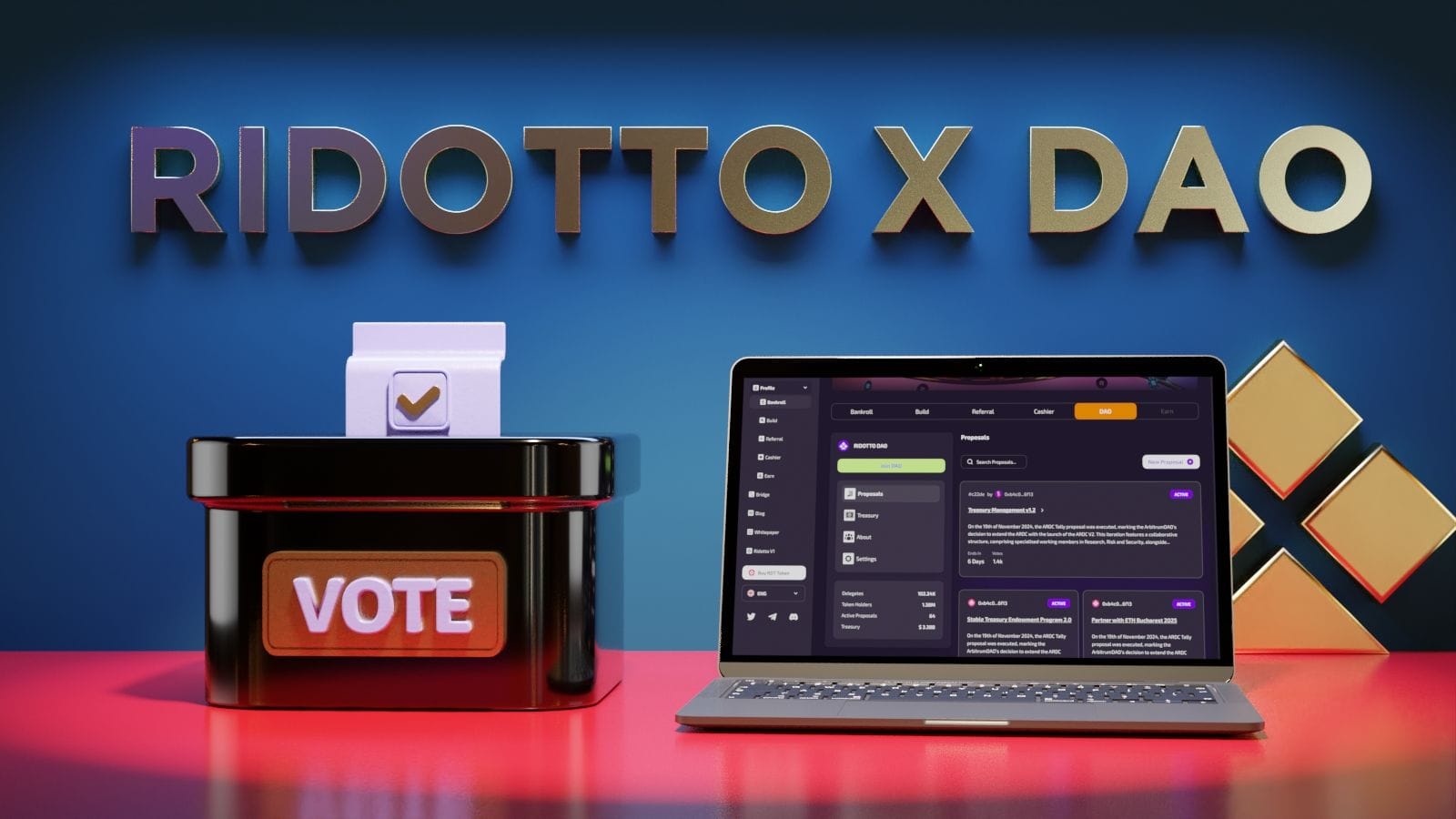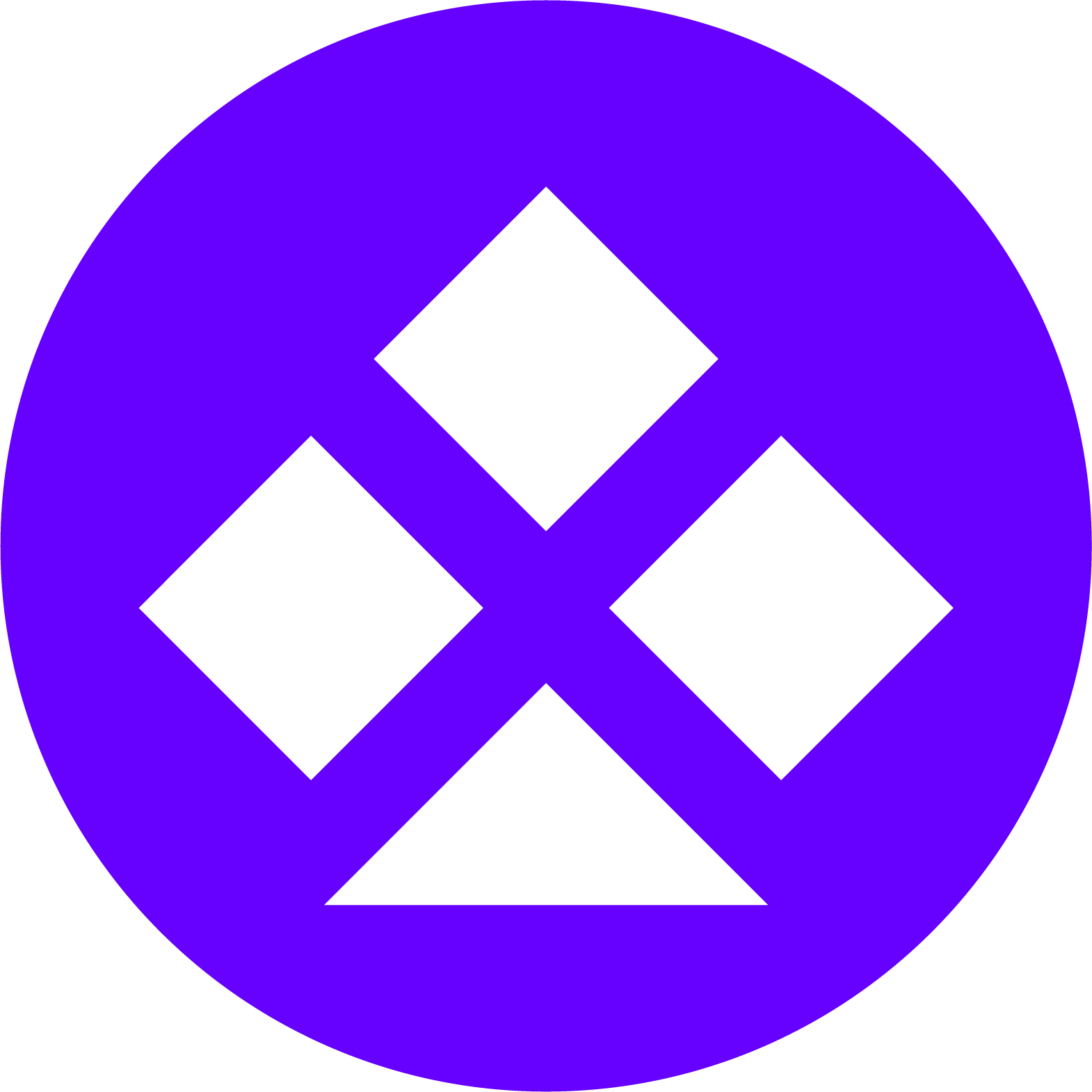Demystifying DAO and DApp: How Ridotto Navigates the Landscape

The world of blockchain innovation is increasingly defined by two pivotal concepts: Decentralized Autonomous Organizations (DAO) and Decentralized Applications (DApps). These transformative tools are reshaping how projects like Ridotto operate, bringing decentralization, transparency, and community ownership to the forefront. However, navigating the complexities of DAO and DApp implementation comes with its own set of challenges and considerations. Ridotto’s thoughtful planning and robust execution provide a roadmap for success in this innovative landscape.
What Are DAOs and DApps?
A DAO (Decentralized Autonomous Organization) is a blockchain-based governance structure where decisions are made collectively by token holders rather than centralized authorities. Powered by smart contracts, DAOs execute decisions automatically once certain conditions are met. This approach empowers the community to influence critical aspects of a project, including managing protocol parameters, allocating funds, and shaping the product roadmap. At Ridotto, we’ve extended the concept of DAOs to encourage greater participation, ensuring that engagement goes beyond mere token holding. For instance, users staking tokens or farming NFTs also gain voting power, allowing active participants to shape the protocol’s future.
A DApp (Decentralized Application) is an application built on blockchain technology that operates autonomously without centralized control. DApps leverage smart contracts to execute processes transparently, creating a trustless interaction between users and the platform. Ridotto’s DApp takes this further by combining IPFS technology for static rendering and a complete reliance on smart contracts for functionality. While this approach has its limitations due to the current maturity of decentralized technology, it fully complies with our legal framework and ensures maximum accessibility for our global community.
The Role of a DAO: Driving the Protocol, Not the Company
While DAOs excel in governing protocol-level decisions, they are not well-suited for managing the daily operations of a company. Decision-making in a DAO often requires time for discussions, voting, and achieving quorum, which can slow down urgent or critical processes. At Ridotto, we’ve delineated the roles of the DAO and the company to ensure efficiency while maintaining decentralization.
The DAO oversees essential aspects such as proposing and approving new features, enabling the core team to submit potential upgrades for community voting, allocating DAO tokens for initiatives, and adjusting key protocol parameters like transaction fees and reward structures. These decisions ensure that the protocol remains community-driven and aligned with the needs of its users.
On the other hand, the company serves as the operational arm of the DAO, executing its vision and managing daily activities. Responsibilities include implementing approved proposals, suggesting enhancements for DAO consideration, overseeing resource allocation, and responding to emergencies. This setup ensures that immediate issues, such as security threats, can be handled promptly without compromising the decentralization of governance.
In simple terms, the DAO governs the protocol’s direction, while the company drives product growth and operational execution, serving the DAO’s broader vision.
How Ridotto Manages This Dual Structure
From its inception, Ridotto has embedded decentralization into its ecosystem, creating a framework that balances governance with operational efficiency. To ensure this balance, Ridotto employs robust mechanisms to manage resources securely and transparently.
Ridotto relies on multi-signature wallets (e.g., Gnosis Safe) to manage protocol resources. These wallets require multiple signatures to execute transactions, preventing unilateral control and adhering to our legal framework. This ensures the protocol remains decentralized and secure.
For services not yet fully supported by multi-signature solutions, Ridotto uses single wallets fortified with enterprise-grade security measures such as vaults and advanced authentication protocols. This approach guarantees maximum security even in areas where decentralization technology has yet to mature, ensuring the smooth operation of all systems.
At What Stage Are We in Ridotto’s Journey?
Ridotto is at a crucial stage of its development, with its ecosystem meticulously designed to support a fully functional DAO. Transparent rules and processes shared openly with the community form the backbone of Ridotto III, the next phase in our evolution. This release represents a significant milestone, ensuring fairness, inclusivity, and decentralization across the platform. With Ridotto III, we are building a scalable and sustainable future in the GambleFi space, empowering the community to take the reins.
Conclusion: Striking the Balance
Ridotto’s thoughtfully designed DAO and DApp framework embodies the perfect balance between decentralization and operational agility. By enabling the community to govern the protocol while ensuring efficient execution through a dedicated operational team, Ridotto positions itself as a leader in the GambleFi space. This dual structure allows us to combine the transparency and inclusivity of blockchain technology with the reliability and speed of centralized operations.
Ridotto is more than a gambling platform—it is a movement towards trust, transparency, and true community ownership. Together, we are redefining the gambling industry, paving the way for a decentralized and inclusive ecosystem. Join us on this transformative journey as we continue to innovate and empower users worldwide.

